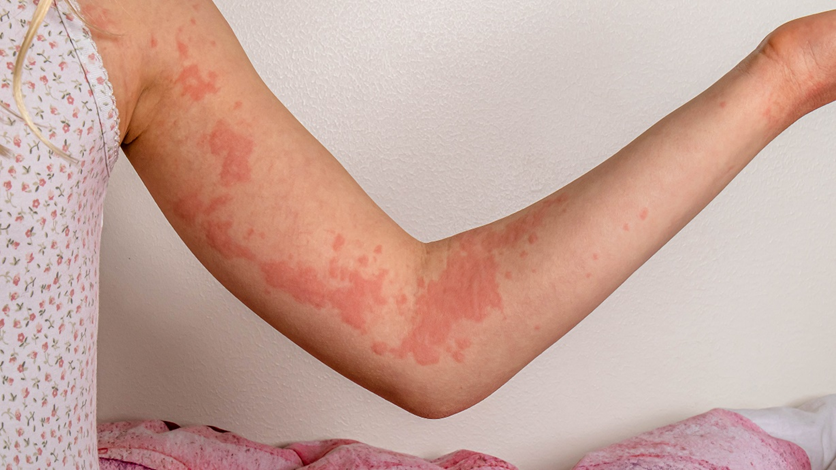
Eczema, also known as atopic dermatitis, is a chronic skin condition that causes inflammation, redness, dryness, and intense itching. It affects people of all ages but is especially common in children. Though not contagious, eczema can impact quality of life if not properly managed.
WHAT CAUSES ECZEMA?

The exact cause isn’t fully understood, but it’s believed to result from a combination of genetic and environmental factors. People with eczema often have an overactive immune system and a skin barrier that doesn’t retain moisture well. Common triggers include:
– Harsh soaps and detergents
– Stress
– Allergens (dust mites, pollen, pet dander)
– Certain foods
– Sudden changes in temperature or humidity
SIGNS AND SYMPTOMS:

– Dry, scaly skin
– Red or brownish-gray patches
– Itching, often severe (especially at night)
– Cracked or thickened skin
– Fluid-filled bumps that may ooze or crust over
MANAGING ECZEMA:

There’s no permanent cure for eczema, but it can be controlled with proper care:
1. MOISTURIZE DAILY: Use fragrance-free creams or ointments to lock in moisture.
2. AVOID TRIGGERS: Identify and reduce exposure to known irritants.
3. USE GENTLE PRODUCTS: Choose soaps and laundry detergents designed for sensitive skin.
4. MEDICATIONS: Topical steroids, antihistamines, or prescribed creams may be needed during flare-ups.
5. COOL COMPRESSES: Help soothe itching and reduce inflammation.
WHEN TO SEE A DOCTOR:
If symptoms are severe, affect sleep, or don’t improve with over-the-counter treatment, a dermatologist can help develop a more targeted care plan.
Living with eczema can be frustrating, but with patience and consistent skincare, you can reduce flare-ups and feel more comfortable in your skin.

